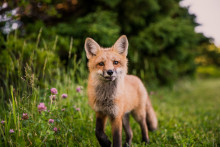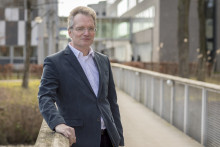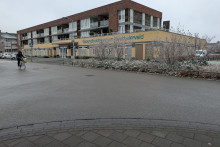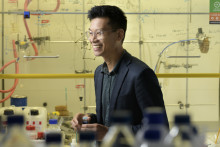The ARISE project just received funding of over 18 million euros from the NWO’s National Roadmap for Large-Scale Research Facilities programme. The University of Twente is one of the key partners in the ARISE consortium and is represented by a team of professors headed by Joost Kok, the dean of the EEMCS Faculty.
Life stored in ‘biocloud’
‘It is amazing how little we know of life on Earth,’ says Joost Kok. ‘We spend billions on the search for life in outer space, while we do not know what lives in the ground under our feet. The ARISE project itself is about creating an infrastructure, an infrastructure that will make it possible to identify every multicellular species everywhere, starting in the Netherlands. We will develop the tools to find them and monitor them.’
'Our job at the UT is to provide the data science'
Discovering species might sound like a job for biologists, but data science will play a large role as well. ‘The heart of the infrastructure is the species identification engine,’ says professor Kok. ‘There will be sites for DNA sample collection and sensing systems and the engine will process this incoming data – such as DNA sequences, photographic and radar images, and sound recordings. Using the Netherlands Species Reference Database as reference, the engine will be able to identify the species and then store it in so called ‘biocloud’. Our job at the UT is to provide the data science, advanced sensing methods and artificial intelligence to do this, to analyze and process all the data.’
Full picture
‘We need to understand life on our planet,’ stresses Kok. ‘We need to know which species exist, how they interact and what their functions are in the different ecosystems. It is all interconnected but we don’t have a good knowledge of how. For instance, if bees or some other species goes extinct, how does this influence everything else? We need to understand the chain, because that can help us find new food, new medicines, understand how diseases spread and so on.’
The project is scheduled to start later this year and should last ten years. After that, we should have a full picture of what species live in the Netherlands – and more, says Joost Kok. ‘ARISE will create an essential infrastructure which can serve many other scientific projects. It can be used not only by biologists, but for example for monitoring climate change. Moreover, once we establish it here, we can use it to monitor biodiversity in places such as the Amazon or anywhere else. This will put us on the map.’
arise consortium
Consortium ARISE, which stands for Authoritative and Rapid Identification System for Essential biodiversity information, includes the following institutes: Naturalis Biodiversity Center (Naturalis), University of Amsterdam, Westerdijk Fungal Biodiversity Institute and the University of Twente.







